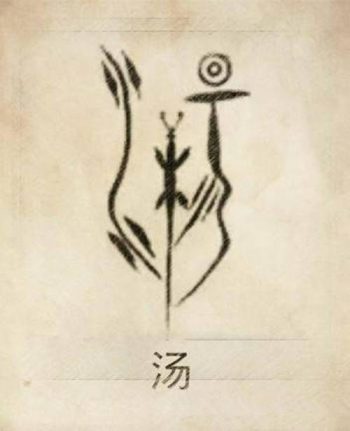With roots tracing back to the founding of the Shang Dynasty (1600–1046 BCE), the Tang(tāng) surname is one of China's oldest and most storied family names. From ancient kings to modern scientists, how this name shaped Chinese heritage? Let’s dive into its fascinating history!

Ⅰ、Origins of the Tang surname:
1. From King Tang to a Family Name
The primary origin traces to King Tang, founder of the Shang Dynasty. After overthrowing the Xia Dynasty, his descendants adopted "Tang" as their surname, form the authentic source of the soup surname.
2. Changing surnames and avoiding taboos
During the Spring and Autumn Period (771–476 BCE), the noble "Dang" family changed to "Tang" to avoid persecution.
In the Northern Song Dynasty (960–1127 CE), scholar Yin Chongyi changed his surname to Tang to avoid naming taboos for Emperor Taizu's father.
3. Ethnic Fusion
During the Northern Wei Dynasty (386–534 CE), Xianbei tribes like Chiluo and Helan adopted "Tang" under Emperor Xiaowen's assimilation policies.
In the Qing Dynasty (1644–1912), Manchu and Mongolian families also adopted the Tang surname.
3. Global Migration
From the Ming and Qing Dynasties, Tang families migrated to Southeast Asia, establishing communities in Singapore, Malaysia, and beyond.
Ⅱ、Historical celebrities
1. Political and military fields
Tang He (Ming Dynasty): A founding minister who assisted Zhu Yuanzhang in pacifying southeast, was awarded the title of Marquis of Xingguo, and was known for his prudence and deliberation.
Tang Kekuan (Ming Dynasty): A famous general who fought against the Japanese pirates and defeated them repeatedly along the southeast coast.
Tang Bin (Qing Dynasty): A renowned minister of NeoConfucianism, who served as the Minister of Works and advocated "practical learning for practical use," promoting local governance reforms.
2. Literary and artistic achievements
Tang Han (Southern Song Dynasty): A Neo-Confucianist who integrated Confucian, Buddhist, and Taoist thoughts, and wrote <Dong Jian Ji> which influenced later academic circles.
Tang Xianzu (Ming Dynasty): Known as the "Chinese Shakespeare," his representative work "The Peony Pavilion initiated the "Four Dreams of Linchuan" drama peak and established the literary status of Chinese classical drama.
Tang Peng (Qing Dynasty): The founder of painting art, who used iron casting lines to express the artistic conception of Chinese painting and created a new school of arts and crafts.
3. Modern influence
Tang Shouqian (Late Qing and Early Republic of China): An industrialist and politician who participated in the construction of the Shanghai-Hangzhou Railway and promoted modernization.
Tang Feifan (Modern): A microbiologist who first isolated the chlamydia trachomatis and was honored as the "Father of Chineseines."
Ⅲ、Cultural significance
1. Symbols & Mottos
Zhongshan Hall: Honors the Tang clan's roots in Hebei Province, symbolizing their connection to ancient Chinese culture.
Yuming Hall: Named after Tang Xianzu's study, representing literary innovation.
2. Migration Patterns
Ancient Era: Concentrated in Henan and Hebei.
Medieval Period: Spread to Jiangsu and Zhejiang via trade routes.
Modern Diaspora: Vibrant communities in Southeast Asia and North America.
IV. Social Impact:
1. Economy and Local
Development During the Ming and Qing dynasties, the Jiangsu-Zhejiang Tang family wealth through the salt industry and textile industry, such as the Changzhou Tang family, which once dominated the silk trade in the south of the Yangtze River, regional economic prosperity.
2. Overseas Migration and Cultural
Dissemination In the Qing Dynasty, the Guangdong Tang family migrated to Southeast Asia, establishing clan hallssuch as the Singapore Tang Clan Association), which became an important bond for the overseas Chinese community; modern Tang family scientists and artists are active on the international stage, promoting global dissemination of Chinese culture.
Conclusion:
The history of the Tang surname is a civilization evolution history from the royal family of the Shang Dynasty to the global Chinese in modern times. From governance philosophy of "benevolent government to destroy Xia" by Cheng Tang, to the humanistic spirit of "love knows no origin, and it goes deep" the works of Tang Xianzu, and then to the pioneering of contemporary technology and commerce, the Tang surname has always carried the genes of Chinese culture of "tolance and innovation". Its clan migration, cultural heritage and social contribution are not only the continuation of blood, but also the transmission of the fire of civilization.